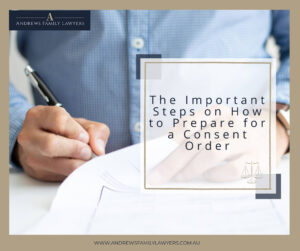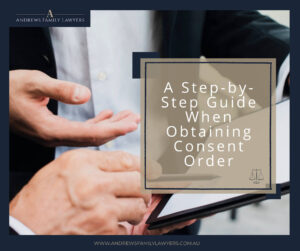Whether you’re seeking a divorce order or dealing with a de facto relationship breakdown, property settlement agreement are crucial to ensuring future financial stability. It’s best to make arrangements through agreement. But can a party be forced into a settlement? A property agreement divides property fairly according to each party’s individual circumstances. While an informal agreement is possible, a legally binding arrangement is recommended. Binding financial agreements allow clients to make a settlement with independent legal advice.A consent order formalises an agreement through the Family Court. The court will use a four-step process that considers each party’s future needs as well as their contributions to the marriage, such as
A property agreement divides property fairly according to each party’s individual circumstances. While an informal agreement is possible, a legally binding arrangement is recommended. Binding financial agreements allow clients to make a settlement with independent legal advice.A consent order formalises an agreement through the Family Court. The court will use a four-step process that considers each party’s future needs as well as their contributions to the marriage, such as It’s not uncommon for family law matters to result in conflict. The Family Law Act requires a genuine attempt to find agreement with your former partner before seeking property orders. Dispute resolution involves resolving property disputes with a qualified mediator. In limited circumstances, family law courts waive mediation requirements. This includes if there are family violence risks or if one party cannot be contacted to attend the negotiations.
It’s not uncommon for family law matters to result in conflict. The Family Law Act requires a genuine attempt to find agreement with your former partner before seeking property orders. Dispute resolution involves resolving property disputes with a qualified mediator. In limited circumstances, family law courts waive mediation requirements. This includes if there are family violence risks or if one party cannot be contacted to attend the negotiations.
Key takeaways
- There are different ways to come to a legally enforceable written agreement for financial matters. Parties can enter a financial agreement or apply for a consent order.
- Parties must undergo mediation before seeking property orders, unless there’s an exemption.
- If one party is non-compliant during pre-action procedures, the process can continue.
Property settlement agreements
 A property agreement divides property fairly according to each party’s individual circumstances. While an informal agreement is possible, a legally binding arrangement is recommended. Binding financial agreements allow clients to make a settlement with independent legal advice.A consent order formalises an agreement through the Family Court. The court will use a four-step process that considers each party’s future needs as well as their contributions to the marriage, such as
A property agreement divides property fairly according to each party’s individual circumstances. While an informal agreement is possible, a legally binding arrangement is recommended. Binding financial agreements allow clients to make a settlement with independent legal advice.A consent order formalises an agreement through the Family Court. The court will use a four-step process that considers each party’s future needs as well as their contributions to the marriage, such as- Direct financial contributions. Income, assets, and other financial resources brought into the marriage.
- Indirect financial contributions. Gifts or inheritances received from family members.
- Non-financial contributions. Homemaking, child rearing, or any other contribution not related to financial support in the marriage.
Dispute resolution in family law
 It’s not uncommon for family law matters to result in conflict. The Family Law Act requires a genuine attempt to find agreement with your former partner before seeking property orders. Dispute resolution involves resolving property disputes with a qualified mediator. In limited circumstances, family law courts waive mediation requirements. This includes if there are family violence risks or if one party cannot be contacted to attend the negotiations.
It’s not uncommon for family law matters to result in conflict. The Family Law Act requires a genuine attempt to find agreement with your former partner before seeking property orders. Dispute resolution involves resolving property disputes with a qualified mediator. In limited circumstances, family law courts waive mediation requirements. This includes if there are family violence risks or if one party cannot be contacted to attend the negotiations.Required to divide property
If you’re unable to resolve your disputes, you can proceed with your property settlement case. The property proceedings can be started by submitting an Initiating Application (Family Law). This sets out what orders you’re requesting the court to make. You’ll also be required to include a financial statement about your financial circumstances. A Genuine Steps certificate shows that you have satisfied the pre-action steps. If you’re looking for interlocutory orders, you’ll also need to submit an affidavit for family law and child support.The proceedings can be streamlined if the application meets the criteria for a Priority Property Pool case. You will be eligible if you’re only seeking financial court orders and the net asset pool is less than $550,000, excluding superannuation interests.If one party refuses to engage with the process, that won’t prevent the Federal Circuit and Family Court from dividing the property pool. However, it can have serious consequences. If the respondent fails to attend the mandatory dispute resolution, the applicant must serve them with a notice of intention. This notice sets out:- The disputes at issue.
- The orders are being sought.
- A genuine offer to find an agreement.
- A time limit within which the other party must respond.
- Make property adjustments to account for the non-compliance.
- Impose sanctions, such as ordering the respondent to pay the other party’s legal costs.

From our clients
I can’t express enough how grateful I am to Andrews Family Lawyers for not only taking on what should have been a straightforward division of assets divorce case, but also for taking the risk financially to support me when the case dragged on.– Richard TaylorIf you’re seeking legal advice on property matters, Andrews Family Lawyers will assist with finding your own agreement or attending court. Clients working with a spouse or de facto partner to organise a financial order need legal support.We ensure that necessary information, such as bank statements and pay slips, is available. We also have experience assisting parties organise spousal maintenance to financially support themselves.






